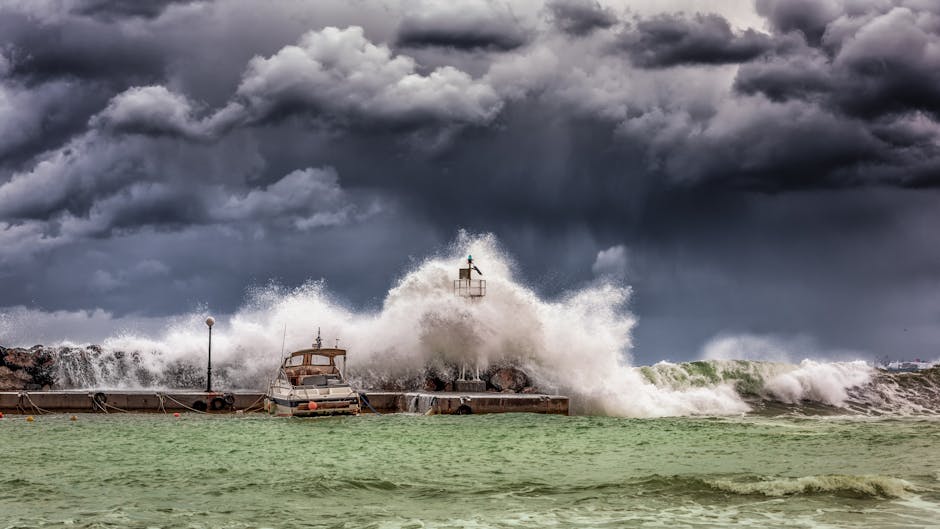The Essential Guide to Hurricane Preparation for Florida Homeowners
Florida homeowners know the critical importance of being prepared for hurricane season. This guide offers step-by-step instructions to secure your peace of mind through preparation, because knowledge and readiness can turn a potentially catastrophic event into a manageable situation.
Understanding Hurricane Risks in Florida
Florida’s unique geographical positioning makes it prone to hurricanes, a fact well known to its residents. The state’s peninsula shape, surrounded by warm waters, acts as a magnet for tropical storms and hurricanes developing in the Atlantic Ocean and the Gulf of Mexico. Understanding the risk involves not just acknowledging the likelihood of hurricanes but recognizing the potential for severe property damage, power outages, and even loss of life. This knowledge is crucial in motivating homeowners to take the necessary steps towards comprehensive preparation.
Analyzing historical data, Florida has experienced some of the most devastating hurricanes on record, each leaving behind a legacy of the importance of preparedness. From the destruction witnessed during Hurricane Andrew in 1992 to the more recent impacts of Hurricane Irma, these events serve as powerful reminders of nature’s force. Awareness and education about these risks are the first steps toward safeguarding your property and family.
Creating a Comprehensive Hurricane Readiness Plan
A well-crafted hurricane readiness plan is your first line of defense against the chaos a storm can bring. This plan should encompass all aspects of preparation, from evacuation routes to communication strategies with family members. It’s essential to designate a safe room or area in your home, stock it with necessary supplies, and ensure all family members are familiar with the plan. Regular drills and reviews of the plan keep the information fresh and reduce panic when a hurricane is approaching.
Part of a comprehensive plan also involves understanding your community’s resources, such as local shelters and their policies on pets, and staying informed through local news and the National Hurricane Center for timely updates. Engagement with community preparedness efforts can also provide additional insights and resources.
Essential Supplies for Hurricane Season
Stocking up on essential supplies well before a hurricane is forecasted is pivotal. Your hurricane supply kit should include water (one gallon per person per day), non-perishable food, a manual can opener, battery-powered or hand crank radio, flashlight and extra batteries, a first aid kit, and medications. Additionally, consider the needs of pets and any family members with special requirements. Having a portable power bank charged and ready can also be a lifeline to keep cell phones operational.
Preparing your home with physical protections like hurricane shutters or impact-resistant windows and reinforcing garage doors can significantly reduce damage. Trimming trees and securing loose items in your yard are also essential steps to minimize the potential for wind-borne debris damage.
Securing Your Home: Structural Preparations
Securing your home involves several structural considerations. Installing hurricane shutters or boarding up windows with plywood can protect against flying debris caused by high winds. If you live in a flood-prone area, sandbags can be used to help prevent floodwaters from entering your home. Regular maintenance checks on your roof and foundation for any weaknesses are also vital, as these are areas that can be severely impacted during a storm.
Evacuation Plans and Safety Protocols
Knowing when and how to evacuate is a crucial aspect of hurricane preparation. Familiarize yourself with local evacuation routes and have a plan for where you can stay if you must leave your area. Keep your car’s gas tank full as a storm approaches to ensure you’re ready to leave at a moment’s notice. Gathering important documents in a waterproof container to take with you is also a critical step. This ensures you have everything needed to start the recovery process after the storm has passed.
Insurance and Financial Preparedness for Hurricanes
Reviewing your insurance policies before hurricane season is essential to understanding your coverage. Ensure you have adequate insurance to cover potential damages to your property and possessions. Consider flood insurance, as it is not typically included in standard homeowner policies. Documenting your home’s contents through photos or video can help expedite the claims process after a storm. Keeping a small cash reserve is also prudent, as ATMs and credit card systems may temporarily cease to function.
Recovery and Rebuilding After a Hurricane
The aftermath of a hurricane can be devastating, but having a plan for recovery can ease the process. Prioritize safety by checking for hazards such as gas leaks or downed power lines before entering your home. Contact your insurance company as soon as possible to begin the claims process. Local disaster recovery services can offer support and resources. Rebuilding takes time and patience; prioritize immediate needs and safety as you work towards restoring your home and normalcy.
Empowering Homeowners Through Preparation
Hurricane season in Florida demands respect, preparation, and proactivity. While you can’t control the weather, being adequately prepared can significantly mitigate the risks to your home and family. By following the steps outlined in this guide, you establish a proactive defense against the unpredictable forces of nature, ensuring you’re ready to face whatever comes your way with confidence.

